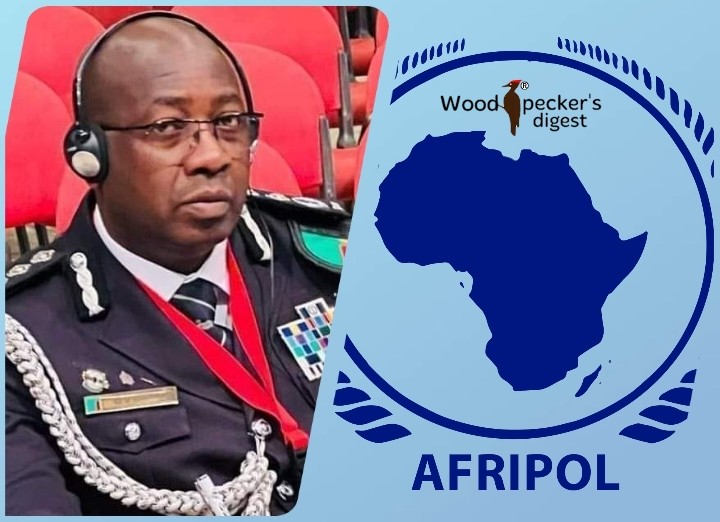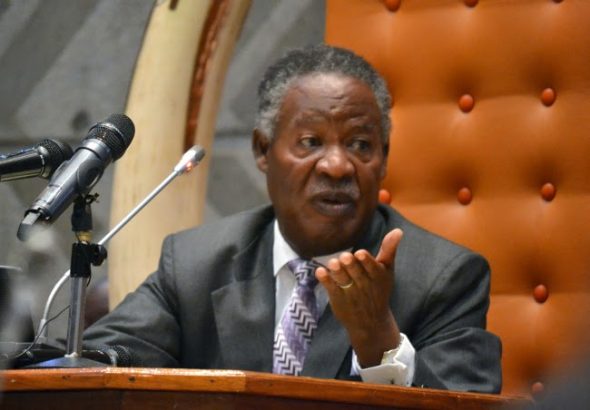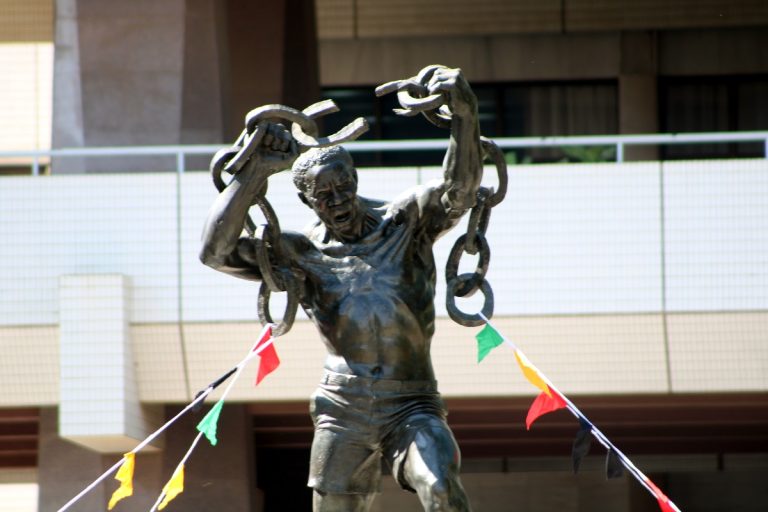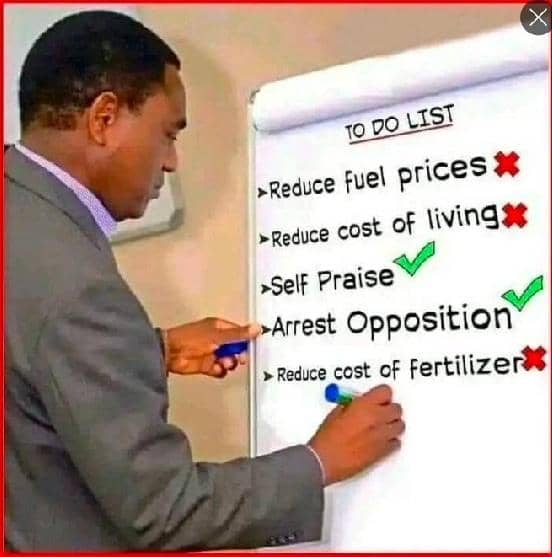
Is the Executive Committee finally ready to break a century-old norm and recommend all the four candidates to the General Assembly in the UK in November?
By Mubita Nawa,
Africa’s candidate for INTERPOL SG 2024
Lusaka, June 25 – As INTERPOL gears up for the pivotal election of its ninth Secretary General this November, the moment has arrived to confront the entrenched tradition of European hegemony in this paramount role.
With four illustrious and formidable candidates – myself, Mubita Nawa from Zambia, Faisal Shahkar from Pakistan, Valdecy Urquiza from Brazil, and Stephen Kavanagh from the UK – vying for the position, a pressing question emerges: Will the Organization’s Executive Committee (EC) shatter a century-old precedent and courageously endorse these four candidates to the General Assembly in the UK this November?
Also Read: Embracing Change: Mr. Nawa’s Candidacy and INTERPOL’s Global Impact. “Mr. Nawa’s candidacy offers a crucial opportunity for INTERPOL to embrace change and strengthen its global influence,” observes Prof. Theletsane.
This week, the eleven nations wielding a decisive vote on the Executive Committee (EC) – United Arab Emirates, Nigeria, Belgium, USA, China, India, Turkey, Namibia, Egypt, Spain, and Argentina – will bear the monumental responsibility of selecting a candidate or candidates to recommend for the General Assembly’s crucial vote in the UK this November. This watershed decision will define INTERPOL’s leadership trajectory and signal its dedication to equitable geographic representation for the next century of global policing.
The INTERPOL Executive Committee’s composition reflects a diverse and influential body. It is currently led by President Ahmed Naser Al-Raisi from the United Arab Emirates, with Vice-Presidents Peter De Buysscher from Belgium and Garba Baba Umar from Nigeria.
The other voting members include Juan Carlos Hernández (Argentina), Binchen Hu (China), Michael A. Hughes (USA), María Alicia Malo Sánchez (Spain), Anne-Marie Nainda (Namibia), Alaa Ragab (Egypt), Selçuk Sevgel (Turkey), and Praveen Sinha (India).
These members bring a wealth of experience and perspectives to the decision-making process, underscoring the global nature of INTERPOL.
Also Read: Nawa Triumphantly Concludes INTERPOL SG Campaign Tour, Secures Resounding Endorsement from Namibia.
Officially inaugurated in 1923 in Vienna, Austria, INTERPOL has recently commemorated its grand centennial. Since its inception, this formidable organization has expanded from a modest 20 to a staggering 196 member countries, securing its status as the world’s largest international organization by membership.
Its governance is meticulously orchestrated by six principal bodies: the General Assembly, the Executive Committee, the General Secretariat, National Central Bureaus, Regional Bureaus, and Advisers, alongside the pivotal Commission for the Control of Files.
Equitable geographic participation has always been INTERPOL’s guiding light, yet the reins of the General Secretariat have been firmly in the hands of individuals from Western Europe and the United States. This year’s election is a make-or-break moment. Since 1923, the General Secretariat has been an exclusive club, led only by individuals from Austria, France, the UK, the US, and Germany.
This unwritten rule has come under fire, with a growing chorus demanding a shift toward broader global representation. The current Secretary-General, Jürgen Stock from Germany, is set to finish his second and final term in November, leaving the door wide open for change.
As the sole African contender, I stand distinguished with an unparalleled and formidable background. Presently, I serve as the Director of Administration for the Zambian Police Service, boasting over three decades of extensive experience.
My commanding leadership in UN peacekeeping missions in Kosovo, Liberia, and Sudan, coupled with my tenure as Director and Head of INTERPOL’s Regional Bureau for Southern Africa, unequivocally underscores my exceptional capability and readiness for this pivotal role.
I have revolutionized regional policing efforts, securing widespread endorsements from the African Union, SADC, AFRIPOL, and numerous national police services across Africa. My campaign is anchored in a dynamic vision to reforge INTERPOL into an unyielding and united powerhouse against the scourge of crime.
I propose an all-encompassing global strategy that zeroes in on prevention, enforcement, international cooperation, and cutting-edge technology and capacity-building. My vision heralds equitable regional representation, fortified cooperation, robust legal assistance, advanced capacity-building, and a unified, formidable global crime strategy.
Also Read: AFRIPOL Endorses Mubita Nawa for INTERPOL Secretary General 2024! “Now, more than ever, is the time for Africa to take its rightful place on the global stage!” the AFRIPOL statement emphasises.
Given the unprecedented presence of legitimate candidates from each of INTERPOL’s four geographic regions, the Executive Committee should earnestly consider recommending all four for the General Assembly’s vote. Such a move would exemplify the principles of equity and inclusivity that INTERPOL strives to uphold. The EC’s recommendation will serve as a pivotal indicator of INTERPOL’s commitment to embracing change and promoting diversity within its highest echelons.
This election is a critical test of INTERPOL’s readiness to adopt structural reforms and enhance the General Secretariat’s responsiveness to the needs of all member countries. Electing me would signify a transformative shift, empowering Africa and other regions to take the lead in addressing crimes within their territories. This would also cultivate greater trust and confidence in INTERPOL’s mission.
With the Global Crime Index revealing that 83% of the world’s population resides in high-criminality areas, and Africa ranking second among regions with the highest criminality scores, it is imperative to have leadership that comprehends and tackles these challenges head-on. My candidacy offers a transformative opportunity for INTERPOL, reflecting a steadfast commitment to inclusivity and global collaboration.
This week’s Executive Committee interviews in France and the General Assembly election in the UK this November will be a litmus test for INTERPOL’s readiness to break Europe’s longstanding dominance and genuinely globalize its leadership. The EC’s role is critical in this process, and its decision will profoundly shape INTERPOL’s future trajectory.
Electing an African leader could significantly empower the continent, enhancing INTERPOL’s capacity to combat international crime and fostering a safer, more secure world for all.
Also Read: A brief chat with Africa’s candidate for Secretary General of INTERPOL, Mubita Nawa! “Our campaign will ensure that the vision for the organization is one that benefits all regions, prioritizing all of them, putting into consideration their unique situation and policing dynamics!” – Mubita Nawa.
About Our Advocacy: Woodpecker’s Digest, an online platform, provides analyses and commentaries on pertinent issues of national interest, complemented by articles focusing on personal development and health. Journalism is a powerful tool for driving positive socio-economic change!
©2024 Woodpecker’s Digest.
Putting news into perspective








